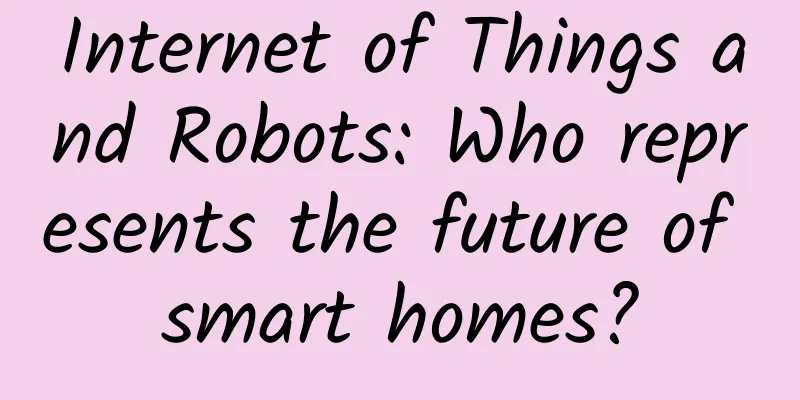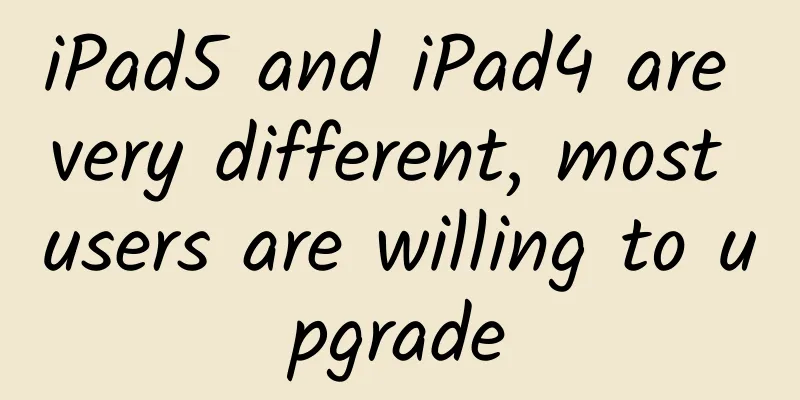Internet of Things and Robots: Who represents the future of smart homes?

|
The US technology news website CNET recently published an article saying that the high-tech industry has once again come to a fork in the road: For the future smart home, do we need a central computer to tell us when to mop the floor, clean the windows and cook breakfast? Or do we need an all-around robot to help us complete these housework. This means that there will be an intelligent control center like Jarvis in our lives? Or will there be a robot like Rosie, which is always there and can do all kinds of housework? Jarvis is a virtual humanized computer in the "Iron Man" comic book, helping "Iron Man" Tony Stark to remotely control his various devices. Rosie is a nanny robot in the cartoon "The Jetsons", who carefully takes care of the Jetsons. These conflicting views were on display last week at the 2015 International Consumer Electronics Show (CES), where more than 3,600 technology suppliers from around the world presented their visions for the future. On one side are companies like Nest, which makes smart thermostats and smoke detectors, and are trying to bring connected devices together on a platform so they can work together. On the other are robotics companies like iRobot, maker of the Roomba vacuum cleaner. But the market hasn’t tipped decisively in that direction because consumers haven’t yet made their choice: whether they prefer Rosie or Jarvis. “I’m not sure customers know what they want,” said Lauren Orvidas, vice president of Amazon’s consumer electronics division. Orvidas oversees Amazon’s online retail store, which offers a wide range of consumer electronics, from cameras to phones to wearables. This will change in the future, as the technology improves and prices come down, more and more people will want to own a robot. For now, expect to see further investment in both types of technology, as everyone looking to play in this market agrees that connected products will change our homes. High-tech companies—from giants like Google and Apple to more recent startups—see the smart home as the next battleground after smartphones, tablets and laptops. Computer networking giant Cisco predicts that the number of connected devices will reach 50 billion by 2020. The company says the Internet of Things will add $19 trillion to corporate profits and save society money over the next decade. The prospect of smart homes is also starting to spark interest. But it’s too early to tell which smart home devices will win over consumers, and even survey companies can’t grasp consumer preferences. According to a 2013 survey conducted by market research firm Forrester, 35% of respondents said they were interested in digital remote-controlled energy management systems, but only 2% had tried them. The company also found that 34% of respondents were interested in digital remote security systems, but only 5% had tried them. Internet of Things There seems to be a wide variety of smart devices out there. There's a smart crib that tracks your child's sleep, a robot that helps you clean your grill, and even a device that detects moisture in the soil and sends a text message to your smartphone when your crops need watering. With so many home devices that can be connected to the internet, some companies are creating software platforms to manage them. Nest is one of the most notable companies in this regard. Last June, the company announced the "Works with Nest" developer program, which aims to allow smart devices from other manufacturers to interact with Nest products and data. For example, the company's partnership with Mercedes-Benz means that your car can notify Nest to turn on the home heating so that it is warm when you get home. This month, the company's "Works with Nest" project added 15 partners, including Philips and smart lock manufacturer August. There are signs that the push is paying off: Nest, which Google bought for more than $3 billion last year, has become a mainstream company, advertising heavily on television and selling its products through Best Buy and Home Depot. Finally, analysts believe that smart device control centers like those created by Nest will help home devices sense the needs of their owners and automatically adjust everything. Nest's devices themselves may eventually disappear from the home, acting only as sensors, while another control center controls home devices. Jonathan Gaw, an analyst at IDC, said, imagine a thermostat you can't see. He said: "The interface will be on your phone - all you really need is a thermometer attached to the wall." Rise of the robots? Ever since the animated series The Jetsons premiered in 1962, Rosie has almost always been mentioned when people talk about household robots. Depicted as a maid robot that walks on wheels, wields a feather duster, and rolls around the room in a frilly apron. She represents the universal, all-purpose robot that can vacuum, cook for you, make you coffee, and offer a witty comeback in any conversation. There are no robots like this in the real world, but they won’t be far away. At this year’s CES, there were a lot of robots on display, both innovative and weird. Some robots moved around the exhibition hall, controlled by users via the Internet; one robot could help you get a beer or soda from the refrigerator. There are several challenges to developing general-purpose robots, and sci-fi cartoons can only predict so much of the future. For example, in the cartoon "The Jetsons," Rosie uses a traditional upright vacuum cleaner. iRobot co-founder and CEO Colin Angle predicts that real-life robots will have this vacuuming capability built into them. But robots may replace the home smart device control center that Nest is working hard to build. iRobot Chief Technology Officer Paolo Pirjanian believes that the biggest advantage of robots is that they can work as physical entities-roaming, serving, pouring things, etc. iRobot has good reason to believe that robots like Rosie will come into our lives. Its Ava robot series is an enterprise-grade video conferencing collaborative robot. The robot is a display mounted on a platform that can be turned around. The company says it’s only a matter of time before you and I encounter robots like Rosie in our lives. Unpredictable customers One of the reasons why the market has not yet formed a clear answer to the future of the smart home is that no one company has emerged as a clear winner. When Apple launched the iPhone, one of its most novel features was replacing the physical keyboard with a touch screen. Within a few years, sales of the device soared, and then almost all other smartphone manufacturers followed Apple and adopted touch screens in their devices. But that won’t be the case with the smart home industry — despite decades of discussion. Some companies and analysts believe that the reality will be the use of smart home devices and robots in conjunction. Brian Pettey, CEO of Actobotics, a Kansas-based robotics supplier, said: "Everything will be connected." Pettey believes that many different types of robots and services will be connected to the smart home device control center. Bill Morelli, an analyst at market research firm IHS, said that in the short term, due to price factors, a smart home with a variety of smart home devices may be a more achievable goal than having a robot like Rosie. At this year's CES, South Korean robotics company FutureRobot said that its service robot Furo-S will cost $75,000. The company nicknamed its robot Rosie because it looks like a robot maid in cartoons (although it doesn't tell any jokes). A spokesperson for FutureRobot said its Furo-S robot is not yet available for home use. Morelli said that eventually, robots that can perform many tasks will enter our homes. However, their functions will not be limited to doing laundry or cooking. "It is very, very difficult for robots to make a major breakthrough," he said. As a winner of Toutiao's Qingyun Plan and Baijiahao's Bai+ Plan, the 2019 Baidu Digital Author of the Year, the Baijiahao's Most Popular Author in the Technology Field, the 2019 Sogou Technology and Culture Author, and the 2021 Baijiahao Quarterly Influential Creator, he has won many awards, including the 2013 Sohu Best Industry Media Person, the 2015 China New Media Entrepreneurship Competition Beijing Third Place, the 2015 Guangmang Experience Award, the 2015 China New Media Entrepreneurship Competition Finals Third Place, and the 2018 Baidu Dynamic Annual Powerful Celebrity. |
<<: Xiaomi Note: A touchstone for Xiaomi’s entry into the mid-to-high-end market
>>: Insider reveals the truth about PS4 delay: no region lock
Recommend
How much does it cost to develop a women’s clothing mini program in Binzhou?
How much is the quotation for Binzhou women's...
The four instructors of Dabohui's "Live Streaming Sales System Course from Beginner to Mastery" will help you master live streaming sales on Douyin
Contents: From entry to mastery of live streaming...
Tesla officially announced its plan to build a factory in Shanghai
Electric car manufacturer Tesla's plan to bui...
Smart mobile terminals: the "crutch" that smart TV products cannot throw away
Nowadays, smart TVs have become the category with...
From 0 to 10 million fans, 98 suggestions for short video operations
What is the hottest trend in recent years? Of cou...
iPhone 6s internal chip revealed: there is still a 16GB version
Previously, the foreign website 9to5Mac got the i...
The full text of Shen Lang and Su Ruoxue is free, the latest version and latest chapter of Shen Lang and Su Ruoxue!
"Wife, I'm out of money recently. Can yo...
AirPods provide countless materials for joke makers, but you are wrong to think it is a rip-off.
The new iPhone 7 and iPhone 7 Plus released at Ap...
Lua 5.3.0 RC2 released
[[125071]] Lua 5.3.0 RC2 is now available for dow...
What is preventing us from having a sweet love?
Getting a sweet love may be what many young peopl...
"K Bao" Valieva's free skating ended dismally: Doping and competitive sports, the never-ending cat-and-mouse game
Written by reporter Wang Xueying Edited by Liu Zh...
This is the correct way to open the recruitment advertisement
Recently, college entrance examination results ha...
Why do some bank card numbers have 16 digits and some have 19 digits?
Do you know what the numbers on your ID card repr...
50 financial secrets to comprehensively improve your wealth!
Money is not everything, but it can solve most pr...
The three Internet marketing crazes I experienced!
As someone who makes a living from management, in...









